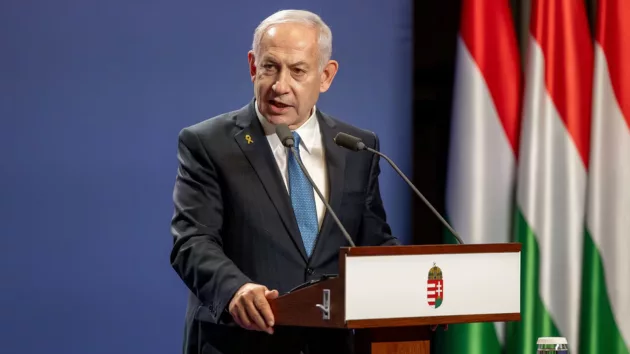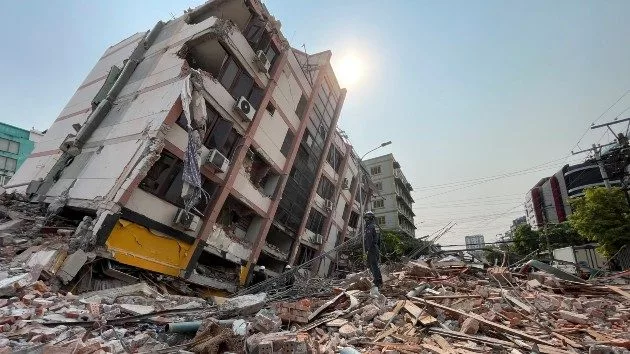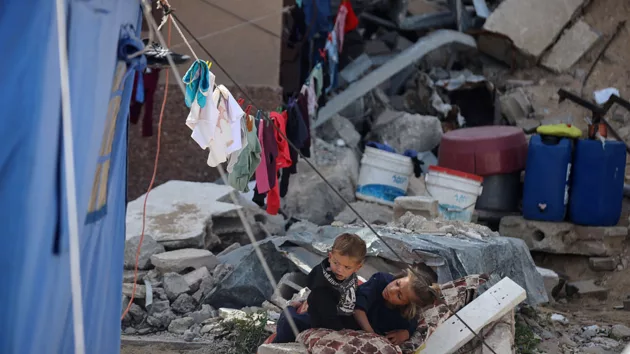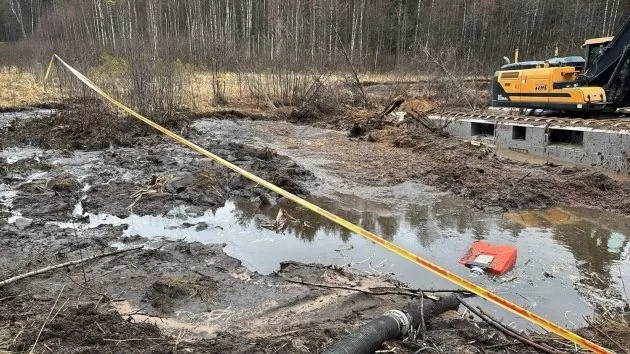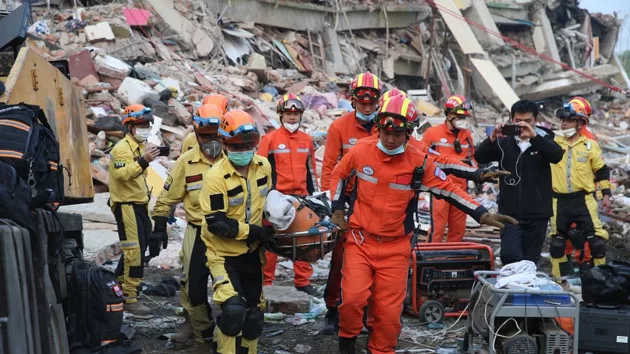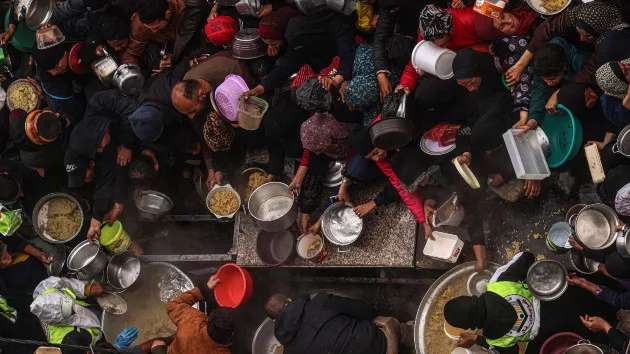
(NEW YORK) — A United Nations official in Gaza said the Monday report of famine-imminent conditions in the strip are “unprecedented” amid the ongoing Israel-Hamas war.
Earlier this week, a report from the Integrated Food Security Phase Classification (IPC) initiative confirmed that famine is fast approaching in northern Gaza and will likely occur before May of this year unless a cease-fire occurs.
The report also found that the entire population of the Gaza Strip, about 2.23 million people, is facing high levels of food insecurity and, in the most likely scenario, an estimated 1.1 million people — half of the population — will be experiencing famine levels of hunger by mid-July.
Limited humanitarian access to and within the Gaza Strip continues to “impede the safe and equitable delivery of life-saving multi-sector humanitarian assistance,” the IPC report said.
Speaking from the city of Rafah in southern Gaza, Andrea De Domenico, head of the U.N. Office for the Coordination of Humanitarian Affairs in the Occupied Palestinian territory, told ABC News that “the scale of this is unprecedented.”
“We’re talking about 1.1 million people,” De Domenico told ABC News. “If you compare to other contexts — at the peak of the famine in Yemen, for example — we had 150,000 people in Phase 5. Here, we’re talking about 1.1 million. So, it’s unprecedented.”
The IPC’s Phase 5 categorization is the most catastrophic and indicates households in that phase are faced with extreme lack of food and unable to meet basic needs, including water and sanitation, De Domenico said.
The Israeli government has received criticism from several countries regarding the possibility of an offensive in Rafah, the city in southern Gaza that borders Egypt. International agencies have accused Israel of not letting enough aid into the country and, when aid is let in, it’s not sufficient.
Israeli officials have said Hamas steals aid once it enters Gaza and claim looting is also a problem. Israel continues to deny all accusations that it isn’t letting enough aid into Gaza and encourages other countries to send in aid, with Israeli officials saying the U.N., its partners and other aid agencies have created logistical challenges, resulting in a bottleneck. The U.N. disputes these claims.
De Domenico said the potential expansion of the military operation in Rafah is one of the “driving factors,” referencing the IPC report, that would bring the entire population of Gaza to a catastrophic situation. An expanded offensive would further limit the already scarce access for those needing to give humanitarian assistance, he added.
“When I’m talking about access to people, I’m not talking about how many trucks cross into Gaza,” De Domenico said. “The problem is not about crossing into Gaza only. The problem is to make sure that the commodities in those trucks reach the people — all the people in Gaza, and particularly those that are most vulnerable.”
According to the scenario presented in the IPC report, 70% of the remaining population in the north, or about 210,000 Gazans, will experience “catastrophic” levels of hunger.
“Not only is [this] a man-made catastrophe, but it is also totally preventable,” De Domenico said. “We can still reverse this trajectory.”
Expanding aid teams’ abilities to deliver food and other supplies to the impacted communities, and diversifying the diet of aid is crucial to addressing the impending famine, he said. Many civilians in Gaza say they are eating animal fodder or scavenging through trash bins for nourishment — ultimately leading to increased cases of diseases.
“The problem is at the moment we barely can bring basic staples into the north of Gaza in particular, and you cannot address famine with bread,” De Domenico said. “Flour is fundamental, but you need a diversity of diet – you need access to water.”
De Domenico said the uniquely narrow land area and concentrated population of the region is crucial to note in discussions of humanitarian response.
In reference to the tangible actions to be taken in the region, De Domenico said the ability to change the impending trajectory of famine is critically time-sensitive.
“That deadline — has already passed. It was yesterday. What we have to do is immediately open those passages and give access to humanitarians … and we’re ready,” De Domenico said.
Access to the Gaza Strip became increasingly limited following Hamas’ terrorist attack in Israel on Oct. 7, 2023. More than 1,200 people have been killed in Israel since then, according to the Israeli Prime Minister’s Office. More than 31,000 Palestinians have been killed and nearly 74,000 injured over the same period, according to the Hamas-run Gaza Health Ministry.
Copyright © 2024, ABC Audio. All rights reserved.



